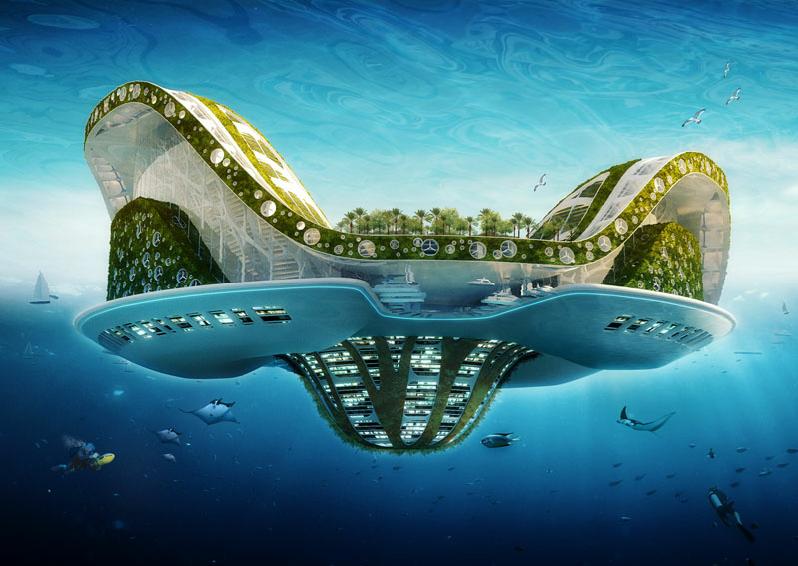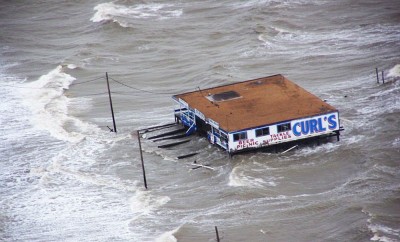Environment
Are Floating Cities The Future?

Image: Wikipedia
Are Floating Cities The Future?
Sea levels are rising, and regardless of whether you believe in the mountains of scientific data that support the fact that rising temperatures and melting ice caps are to blame, you have to accept that one simple fact. The average sea level is rising by about one inch per year and has been since the early 1990’s.
And if you don’t think that is true, please, tell that to the people of the Marshall Islands.
The Marshall Islands are a tiny republic located in the South Pacific, and every year they watch the sea creep ever closer to their homes. It’s tough to find anyone on the island who hasn’t thought about where they will go when the waves cover the islands. None of them relish the thought, though. They know how tough it will be to maintain their culture once they are forced to move away.
And the Marshallese aren’t the only island nation facing this reality. If sea levels continue to rise at the same rate they are now, millions of people will be displaced by rising water by the end of the century, including large portions of coastal cities in the U.S.
While the U.S. will likely be able to maintain its identity as a nation through this crisis, groups of people like the Marshallese and the people of Kiribati won’t be so lucky when their entire country is submerged.
So how can these people find a way to live on a flooding planet without destroying their national identity. One of the most interesting proposals is the idea of floating nations, cities constructed on floating platforms that will enable groups like the Marshallese and Kiribati to survive intact.
As the amount of inhabitable land on the Earth shrinks, floating cities might be a way to house the millions of climate refugees and hopefully create a more sustainable standard of living.
The Lilypad is one of the floating cities suggested. Envisioned by architect Vincent Callebaut, the Lilypad is a massive floating city designed to house hundreds of thousands in a self-sustaining way.

Image: Vincent Callebaut Architectures
The city is designed to get most of its power from solar, wind, and wave energy. While it is merely a concept at the moment, it shows what the future might have in store.
Another concept for the floating cities which is a bit closer to a reality is the Freedom Ship. A giant ship designed to host 600,000 permanent residents, its concept incorporates many of the sustainability ideas of the Lilypad, but it has already reached the funding stage. Its designer is seeking $11 billion from Chinese investors to build the massive vessel. It’s so large that there is no existing dockyard capable of its construction. It would have to be built in pieces that would then be hauled out to sea for assembly.
The floating cities concept is similar to the World Ship, which is a mega cruise liner that already serves as a home to thousands as it permanently circles the world’s oceans. Far from being a home to climate change refugees, however, it is more of a retirement community for people who can afford the millions of dollars a suite on the ship costs.
The concept of a floating nation is actually even a reality for some people. The Chao Lei, or Sea People in Thai, are a small ethnic group that have lived at sea for centuries. Originally descended from fishermen who moved onto their boats to escape violence on land. Their descendants live today on a group of ships, making their living from fishing. The community was virtually unknown in the wider world until the Asian Tsunami of 2004 saw the group making headlines after it was revealed that not a single one of the Chao Lei had died, proving the capacity of a floating community to survive catastrophic natural disasters that were devastating to those on land.
One thing is clear, as the sea levels rise, sustainable and innovative use of the Oceans is going to become an ever more vital necessity for the survival of coastal communities.





0 comments